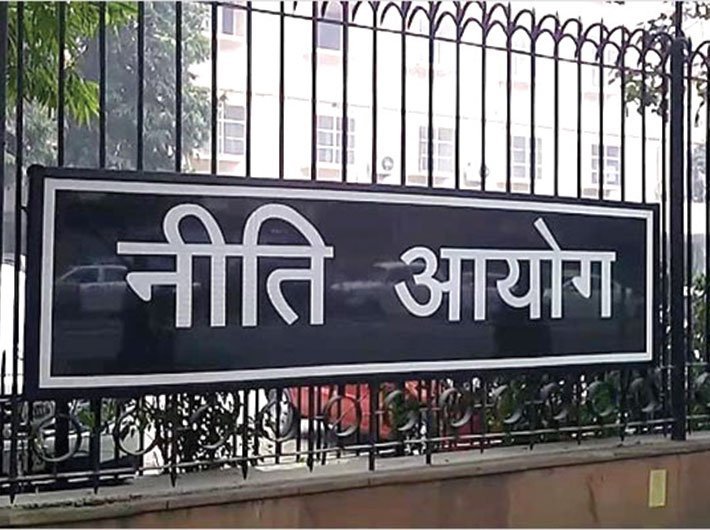The government needs to undertake more concerted efforts to revive the credibility of Public Private Partnership (PPP) framework and build capacity within various public institutions for PPP implementation, said a Niti Aayog specialist.
In a blog “Rebooting Public Private Partnership in India”, Aman Hans, who is working as PPP specialist in NITI Aayog, suggested including implementation of some of the key recommendations of the Kelkar Committee Report including setting-up of national level PPP institution, a dedicated PPP tribunal, and a formal framework for post award contract renegotiation.
“Undertaking these measures shall send strong signal to the market about the commitment level of the nation to overall PPP framework. Further it is imperative for the government to push PPP pilot projects in newer sectors, along with formulation of newer or revision of existing Model Concession Agreements (MCAs), to ensure replicability,” wrote Hans.
The specialist said that to bridge the growing infrastructure deficit in the country, considerable efforts have been made towards increasing the investment in physical infrastructure, especially since 2004 when several measures were undertaken to promote private investment in infrastructure both directly and through PPPs.
During 2007-12, private sector contributed 36.6% in the overall infrastructure investment, leading to infrastructure investment rising from ~5% of GDP during 2002-07 to ~7% of GDP during 2007-12.But this momentum could not be sustained and it is estimated to have slowed down to 5.6% of GDP during 2013-17. This decline in infrastructure investment is attributed to the slowdown in overall private sector investment, though it has partially been offset by the fiscal stimulus measures into infrastructure in recent years.
“In the next five years (2017-22), in order to maintain a similar level of infrastructure investment, it is estimated that spending on infrastructure needs to increase to Rs. 50 lakh crore. This would require the government to take proactive and expeditious measures to leverage on the private sector finances and to judicially exploit private sector capacity to build and manage infrastructure facilities, in a sustainable manner,” said Hans.
He went on to say that a mature PPP framework is one of the most useful tools with the governments to facilitate private investment into infrastructure. PPPs are long term contracts between the government (sponsoring authority) and a private company that may typically provide for financing, construction, operation, and maintenance under a single firm or a consortium. It is generally advised to adopt a suitable PPP framework in case of large and complex projects that can justify the associated transaction and monitoring costs and thus provide value for money considering the project’s life-cycle cost to the government.
In India, the period from mid 1990s to 2004 marked the inception of PPPs, with transport and power being the focus sectors. The country, however experienced limited success due to absence of a mature PPP framework. Subsequently during2004-12, with the government laying foundation for a mature PPP framework, by formulating guidelines and standardization of documents for PPP projects, the country experienced a spurt in award of PPP projects.
As per the latest available data from ministry of finance, 1,539 PPP projects have been awarded so far in India. Out of these, about 50% are currently in operational stage, while others are either scrapped or are under different stages of implementation.
Success of PPP to a large extent depends on optimal risk allocation among stakeholders, environment of trust among stakeholders, robust institutional capacity to undertake grooming and implementation of PPP projects. Further to foster successful implementation of a PPP project, a robust PPP enabling ecosystem including liquid and diversified financial institutions; sound regulatory and arbitration framework; mature developers and experienced consultants etc. is also essential, said the blog.
Building on the learnings from the past experience, the government has in the last three years, undertaken some noteworthy steps to strengthen the PPP framework and the enabling ecosystem in India. This includes formulation of guidelines for new innovative PPP models, with due consideration to the extant risk outlook and investor appetite, like monetization of publically funded highway projects worth Rs. 35,600 crore under Toll-Operate-Transfer Model (ToT) and construction and expansion of over 60 highway projects under Hybrid-Annuity-Model (HAM).
With implementation of PPP models like HAM & TOT, the Government has optimally taken over the project implementation risk and thereby revived the interest of private players and financial institutions in PPP projects in the road sector to a considerable extent. Further the government has liberalised the exit policies for concessionaires to free-up equity for re-investment into new projects; approved the policy of railway station development through PPP and is currently in the process of formulating suitable PPP policy for newer sectors and asset classes.
